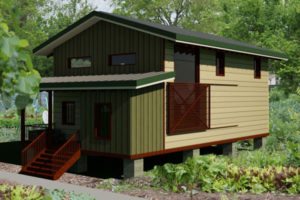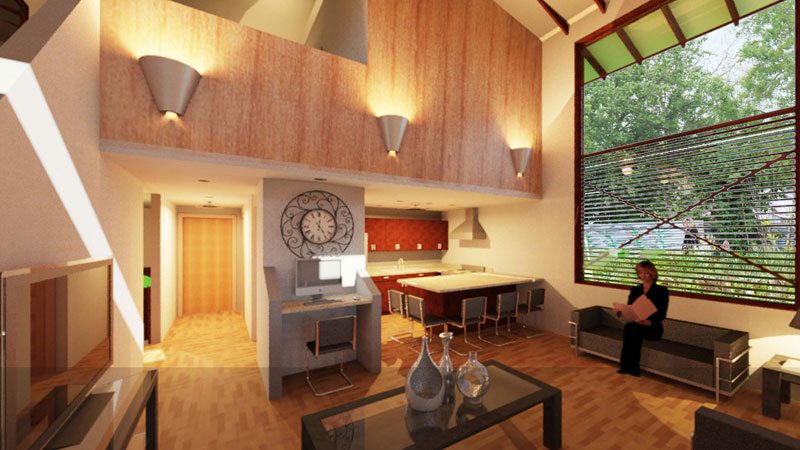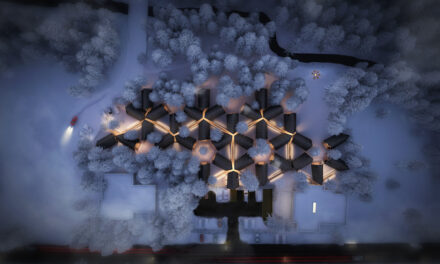Prairie View A&M University in Prairie View, Texas, won the third annual “Race to Zero Student Design Competition,” a collegiate competition engaging university students in the design of zero-energy-ready homes, the Department of Energy announced.
With its entry, Double Barrel House, Prairie View’s team sought to design and build a modest residential structure that combined “resilience” affordability, addresses the area’s proneness to flooding, and considers the architectural dynamics of the neighborhood and fits in this architectural fabric.
Energy-efficiency features include a continuous thermal barrier, natural ventilation, Passive House-certified windows, a floor raised on piles for flood protection, fixed-shading horizontal and vertical devices to completely shade all windows, and an array of other high-tech, low-energy mechanical systems and finishes.
A zero-energy-ready home is a high-performance home that is so energy efficient it can offset all or most of its annual energy consumption with renewable energy. This significantly reduces a home’s annual electricity costs while improving comfort, health, safety, and durability.

Credit: Prairie View A&M
The competition, held at the National Renewable Energy Laboratory (NREL) in Golden, Colo., April 16-17, is designed to inspire next-generation architects, engineers, and construction managers to apply the latest building science innovations in new and existing homes, DOE said. The awards recognize students who excel at integrating solid building-science principles into designs for zero energy-ready homes including creative solutions to real-world problems.
This year’s competition featured 31 teams from 25 universities. Over the past several months, students were tasked with creating a new house design or redesigning an existing floor plan to meet the competition’s cost-effective, high-performance home energy requirements. The students then presented their innovative designs at NREL to a panel of national experts, including leading architects, high-performance home builders, and building product and science professionals.
Other winning teams include the Appalachian State University; the Illinois Institute of Technology; the Net Zero Wisconsin Team, from the University of Wisconsin-Madison and the University of Wisconsin-Milwaukee; Philadelphia University; Ryerson University of Toronto, Ontario; and the University of Illinois at Urbana-Champaign.
More information: Race to Zero Student Design Competition website.





